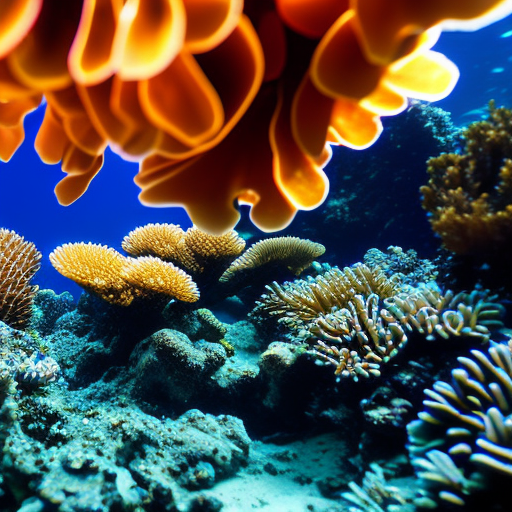Coral Reef Studies: Understanding the Importance and Challenges
Coral reefs are diverse and valuable ecosystems that support a wide range of marine life. However, they are under threat from various factors, including climate change, pollution, and overfishing. To understand and protect these vital ecosystems, scientists conduct extensive studies on coral reefs.
1. Importance of Coral Reef Studies
Coral reefs are often referred to as the “rainforests of the sea” due to their incredible biodiversity. They provide habitat for numerous species, including fish, crustaceans, and mollusks. Additionally, coral reefs protect coastlines from erosion and storm damage, and they contribute to local economies through tourism and fisheries.
2. Monitoring Coral Reef Health
Scientists use various methods to monitor the health of coral reefs. One common approach is conducting underwater surveys to assess the abundance and diversity of coral species. They also measure factors such as water temperature, salinity, and nutrient levels to understand the environmental conditions that affect coral growth and survival.
3. Coral Bleaching
Coral bleaching occurs when corals expel the symbiotic algae living in their tissues, causing them to turn white. This phenomenon is primarily caused by increased water temperatures due to climate change. Researchers study coral bleaching events to understand the impacts of rising temperatures on coral reefs and develop strategies to mitigate the effects.
4. Coral Restoration
Efforts to restore damaged or degraded coral reefs are a crucial part of coral reef studies. Scientists explore techniques such as coral gardening, where fragments of healthy corals are grown in nurseries and then transplanted onto damaged reefs. They also investigate the use of artificial structures, such as 3D-printed coral reefs, to provide new habitats for coral colonization.
5. Coral Reef Resilience
Understanding the factors that contribute to coral reef resilience is essential for their long-term survival. Scientists study resilient coral populations that can withstand environmental stressors and identify the genetic traits that make them more resistant to bleaching and disease. This knowledge can inform conservation strategies and help protect vulnerable reefs.
6. Threats to Coral Reefs
Coral reef studies also focus on identifying and mitigating threats to these ecosystems. Pollution from land-based activities, such as agricultural runoff and sewage discharge, can harm coral reefs. Overfishing can disrupt the delicate balance of reef ecosystems, leading to the proliferation of algae and the decline of coral populations. By understanding these threats, scientists can work towards implementing effective conservation measures.
7. Collaboration and Conservation
Coral reef studies require collaboration between scientists, governments, and local communities. Researchers work closely with stakeholders to develop sustainable management strategies that protect coral reefs while supporting the needs of local communities. This collaboration also involves raising awareness about the importance of coral reefs and the actions individuals can take to help preserve them.
In conclusion, coral reef studies play a vital role in understanding and protecting these fragile ecosystems. By monitoring coral reef health, studying coral bleaching events, exploring restoration techniques, and identifying threats, scientists can contribute to the conservation and long-term survival of coral reefs. Collaboration between researchers, governments, and communities is crucial to implementing effective conservation measures and raising awareness about the importance of these valuable ecosystems.












